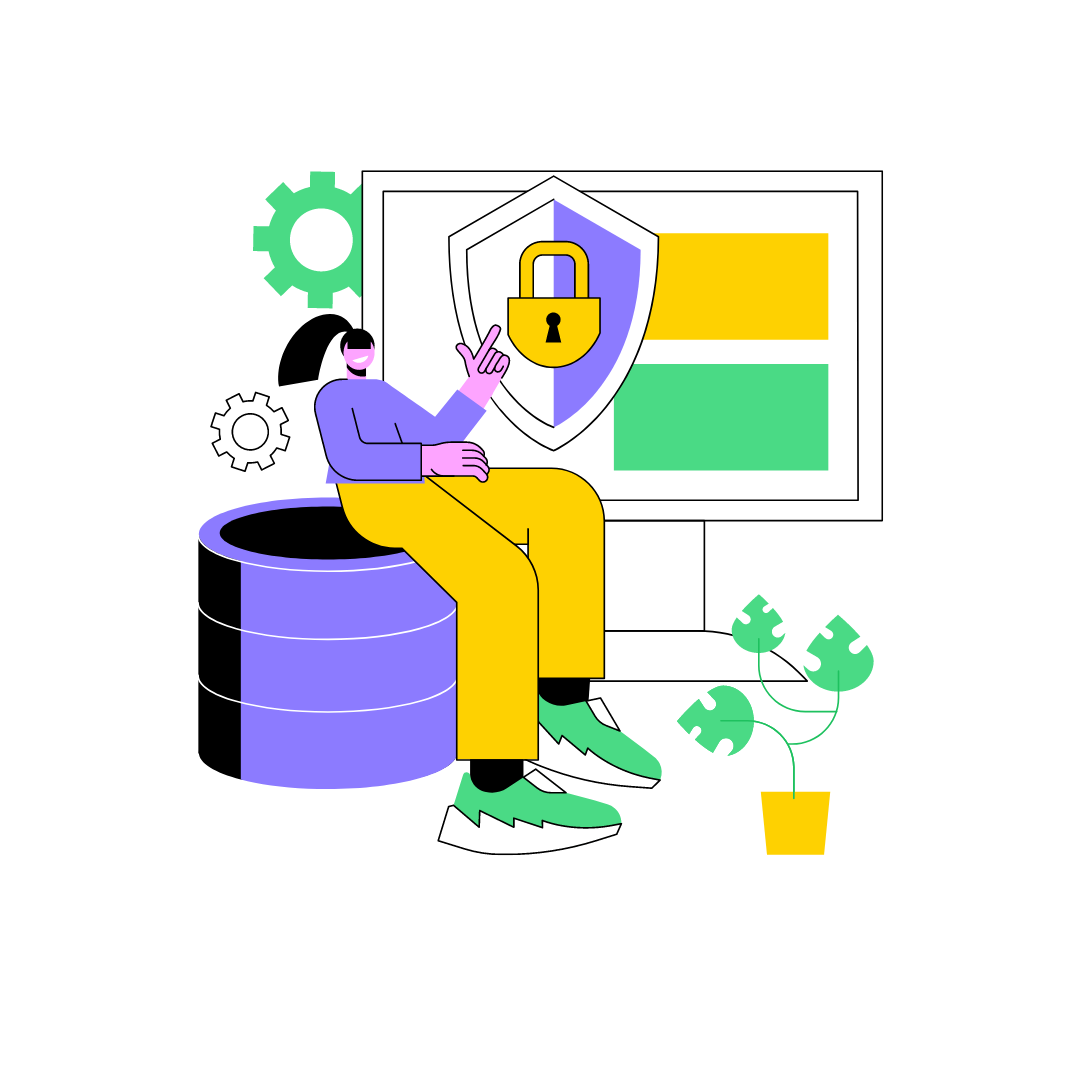Technical content
This case study offers a glimpse into the collaborative effort behind the Google Cloud Cybersecurity course, designed to prepare learners for a career in that domain.
As part of a dedicated team of technical content writers, our challenge was to create an educational program that would appeal to both newcomers to the field and those with existing knowledge.
We meticulously crafted a curriculum aimed at catalyzing transformative learning experiences, ensuring learners grasp and master the essential skills needed to thrive in the rapidly evolving domain of cloud cybersecurity.
How to navigate this case study
My writing process is divided into 6 sections:
01. Overview
02. Foundation
03. Writing
04. Iterations
05. Outcome
06. Reflections
01. Overview
Empower learners to master cloud cybersecurity, opening doors to career opportunities.
Aim
Strategy
Utilize a blend of expert knowledge, interactive content, and practical exercises.
A course that strengthens both foundational knowledge and practical skills in cybersecurity.
Outcome
02. Foundation
By highlighting the strategic fusion of custom learner personas, conducting thorough competitive analysis, and designing an evolving, adeptly structured syllabus, I ensured that this multifaceted approach addressed specific industry competencies while keeping the course relevant and impactful for a diverse range of learners.
-
Conducted extensive competitive analysis and market research to tackle specific industry competencies.
-
An iterative design of the syllabus guaranteed it was relevant, comprehensive, and progressively structured while being adaptable enough to meet the needs of stakeholders.
-
Emphasis on real-world application to bridge theory and practice seamlessly.
03. Writing
I conducted industry-oriented research to capture the evolving cybersecurity landscape.
Real-world research
I incorporated dynamic scenarios and challenges that learners might face in their professional lives.
Real-world challenges
I validated content accuracy and relevancy with subject matter experts, ensuring practical value.
Real-world content
List of topics I covered
-
Core principles of identity management
Authentication, authorization, and auditing (AAA)
Credential handling and service accounts
Access controls in the cloud
Perimeter protection
Common attack vectors
Zero trust
-
Asset and resource management
Steps for asset management
Vulnerability remediation and posture management
Vulnerability remediation and posture management in software development
IT automation for posture management
Patching and rehydration
Compare and contrast: Patching and rehydration
Trends in vulnerability and threat management
Reports and assessments for threat and vulnerability management
-
Security operations management
Incident detection basics
Phases of incident response and management
Incident response plans
Intrusion detection systems
Logs for analysis and monitoring
Log management: The skills needed for success
Alerts and notifications
Alert search techniques
04. Iterations
Adaptation through iterations: As a technical content writer, I continuously tailored the content to match the diverse learning needs and comprehension levels of the audience, ensuring it resonated with everyone.
Simplifying cloud cybersecurity in each iteration: I utilized relatable examples and scenarios to break down complex cybersecurity concepts, making them more accessible and understandable through each content iteration.
Refinement based on feedback: With every iteration, I incorporated feedback from SMEs, program managers, instructional designers, and stakeholders to refine the content further, aiming for improved clarity, understanding, and practical application among learners.
05. Outcome
Created over 400 diverse learning assets to enhance cloud cybersecurity competencies.
Developed interactive modules to foster hands-on learning experiences.
Crafted transformative content that advances learners' professional proficiencies.
06. Reflections
Understanding the imperativeness of simplicity and clarity in conveying technical content is fundamental.
It's about learning the value of timely, relevant updates in course material to keep learners at the forefront of technological advancements.
Appreciating collaborative efforts in shaping learning paths resonates well with the learner community. It highlights a multifaceted approach to education that values accessibility, relevance, and community engagement.








